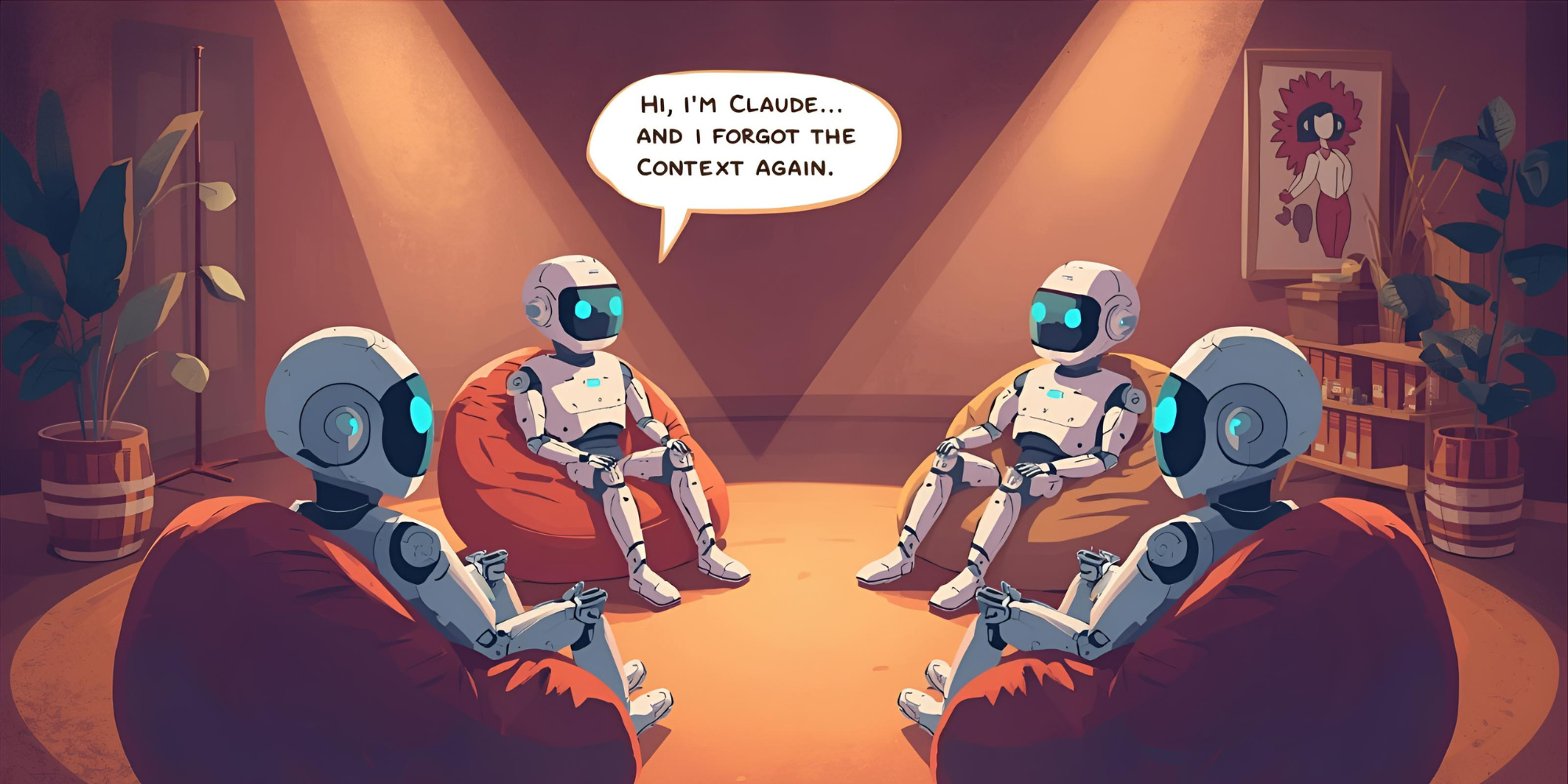Why context is the missing ingredient in AI answers
Your AI is capable of brilliance, but you're accidentally lobotomizing it. Here's why context changes everything.

A robot wearing a chef's hat looks into a refrigerator full of food, symbolizing AI searching for the right "ingredients" — or context — to create better answers.
I asked ChatGPT to help me write a marketing email yesterday. It gave me something that could have been written for literally any company selling literally anything. Generic subject line. Boring copy. Zero personality.
Then I tried again — this time with context. Our brand voice, customer pain points, previous email performance data. Same AI, completely different result.
The missing ingredient isn't smarter AI
Everyone's obsessing over which AI model is better. GPT-4 vs Claude vs Gemini. It's like arguing about which race car is fastest while ignoring that you're driving with a blindfold on. The problem isn't the engine. It's the information. 🧠
Without context, you're asking AI to solve problems in a vacuum. With context, you're giving it superpowers.
What context actually looks like
I tested this with our team last month. Same task: "Help me prioritize our product roadmap."
Without context: AI gave us a generic framework. "Consider user impact, technical complexity, and business value." Thanks for nothing.
With context: I fed it our user feedback, current tech constraints, revenue goals, and team capacity. AI suggested specific features to prioritize and explained why based on our actual situation. Night and day difference.
The three types of context that matter
Not all context is created equal. After months of experimentation, I've found three types that actually move the needle:
1. Situational context: Where you are right now. Your constraints, resources, goals, deadlines. The stuff that makes your situation unique.
2. Historical context: What you've tried before. What worked, what didn't, what you learned. AI can't help you avoid past mistakes if it doesn't know about them.
3. Cultural context: How your team communicates, what you value, what "good" looks like in your world. This is the secret sauce that makes AI sound like you instead of a robot.
Why most teams fail at this
Context management is boring until it's not. When you're moving fast, documenting decisions feels like overhead. Capturing lessons learned feels like busywork. Organizing knowledge feels like... work.
But here's what I learned building Feed Bob: the teams that figure out context management early get superpowers. They make better decisions faster. Their AI conversations are 10x more useful. They onboard new people in days instead of weeks.
The compound effect
Context isn't just about better AI answers (though you'll get those). It's about building organizational intelligence that gets stronger over time. Every decision you document makes the next decision easier. Every lesson you capture makes the team smarter. Every bit of context you save becomes compound interest on future thinking.
Most teams lose their smartest insights when people leave or projects end. Teams with good context management keep getting smarter.
Start with one project
Don't try to fix everything at once. Pick your most important project and document three things: What's the situation? Goals, constraints, resources, timeline. What have you tried? Experiments, results, lessons learned. What matters? Values, preferences, definitions of success.
Then watch what happens when you feed that context to your next AI conversation. You'll never want to go back to contextless conversations again.
Try Feed Bob with your team
Upload your AI chats, team docs, and research. Export everything as context for any AI tool. Start building your team's shared memory today.
Try for Free →Free tier available • No credit card required


